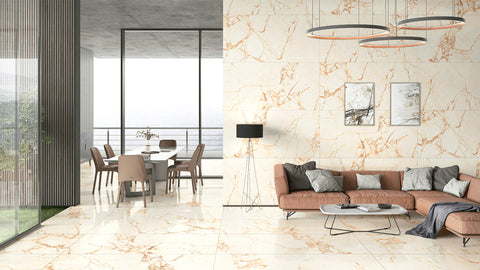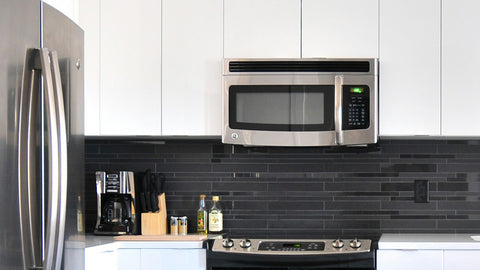Takeaways:
1) Easy to clean:
Hard floors > Tile floors > Linoleum floors
2) Durability:
Stone floors > Tile floors > Vinyl floors
3) Aesthetic value:
Hard floors > Tile floors > Stone floors
4) DIY friendliness:
Laminate floors > Vinyl floors > Linoleum floors
5) Ease of maintenance:
Stone floors > Linoleum floors > Vinyl floors
Are you looking for some of the best floors to fit your homes? Do you consider DIY-friendliness, ease of maintenance and cleaning, durability, and aesthetic value factors? If yes, then you are in luck as this article is especially here for you.
After reading this article, you will have some insight on different types of floors, and how to maintain them.
1. Carpet Floors

The carpet floor is a very popular choice amongst homeowners in the United States largely due to its cost-effectiveness and ease of maintenance. It is suitable for almost every bedroom.
Advantages
- It is easy to walk on, due to its warmth and softness.
- It is a great choice for soundproofing and is also cost-effective.
- Stain-resistant technology has made carpets more desirable and easier to maintain.
- Just like other floors, it can come in different designs, materials, and colors.
Disadvantages
- They can also be very difficult to clean and maintain.
- Wear patterns are easily visible over time.
- Compared to other floor types, carpets attract more dust since they are mostly made from wool or cotton.
2. Hardwood Floors

Hardwood or “Solid wood” floors have been around for decades. Hardwood flooring costs can fluctuate due to different wood types. Owing to its durability and aesthetic value, it is always a good choice for most homeowners.
Advantages
- It can increase the aesthetic value of your space.
- It is easy to install and clean.
- It can be refinished from time to time.
- It is strong and durable.
Disadvantages
- The price range is between $2,500 to $6,500, some may be more expensive.
- It can incur scratches, dents, and scrapes due to high traffic.
- It is prone to moisture damage.
- It is not suitable for specific areas like basements, laundry rooms, and bathrooms.
3. Laminate Floors

If you are a homeowner looking for an alternative to carpets, but want to circumvent the higher costs of tiles and hardwood, then this floor is for you. You can install this floor yourself and it is relatively easy to maintain.
Advantages
- It is relatively easy to clean.
- It is DIY-friendly.
- Unlike hard floors, it has a higher resistance to scratches and dents.
- It is less expensive, compared to hardwood.
- It can come in different colors and styles.
Disadvantages
- Like hardwood, it is prone to moisture damage.
- It makes hollow sound underfoot, just like engineered wood floors.
- It does not have the feel or the look of pure wood, affecting its natural aesthetics.
- It has a higher tendency to crack easily.
4. Vinyl Floors

Extremely water resistant, even if it is wet for a long period of time, vinyl floors are slowly gaining popularity amongst property owners. This floor is totally made of plastic, and can come in two major forms: Luxury Vinyl Tile (LVT) and Luxury Vinyl Plank (LVP).
Advantages
- Great for bathrooms, basements, and laundry rooms due to its water resistance.
- It is durable and can come in different design choices.
- It is easy to maintain and DIY-friendly, like laminate floors.
Disadvantages
- This type of floor is more expensive than laminate floors.
- It has a lower return on investment, unlike hardwood floors.
5. Engineered Wood Floors

Engineered wood floors give off the feel of real wood at prices more affordable than hardwood. With construction as simple as bonding thin layers of hardwood over plywood of high quality, it is a great choice for most American homes. Just like regular hardwood, it is durable.
Advantages
- It has many installation methods, so creativity is welcome.
- It is less likely to warp (twisted or distorted).
- It is more water-resistant than real wood.
Disadvantages
- Unlike hardwood, refinishing can be done just once.
- It has a low resistance to fading.
- It can emit volatile organic compounds.
- It can produce unpleasant hollow sounds underfoot.
6. Linoleum Floors

Are you a fan of eco-friendliness and durability? If yes, then linoleum floors are for you. Unlike vinyl floors, they are made from cork and linseed oil, are pretty easy to install, and are very affordable.
Advantages
- Linoleum floors are more eco-friendly than vinyl floors.
- Inexpensive and DIY-friendly.
- It requires very little maintenance, and can come in different patterns.
Disadvantages
- It does not add great value to the home aesthetically.
- It can easily be dented or cut.
- It tends to be discolored when exposed to direct sunlight.
- Unlike vinyl floors, it is prone to moisture damage.
7. Stone Floors

Stone floors are as natural as they can get, making them a popular choice amongst elites. They are suitable for both outdoor and indoor spaces. Just like porcelain and ceramic, they are perfectly waterproof and extremely durable.
Advantages
- It is elegant and bold.
- It is waterproof, making them highly durable and long-lasting.
Disadvantages
- It is very expensive and difficult to install, requiring a lot of prep work.
- It is also difficult to maintain.
- It can be cold, slippery and hard, unlike carpet floors, making it a bad choice for kids.
8. Tile Floors

Porcelain, ceramic, terracotta, and quarry are some of the most common tile materials. Due to their high water resistance, they are very durable. It is important to note that not all tiles are strong enough for floors, so specify the types of tiles you want for floors.
Advantages
- Durable, waterproof, and long-lasting.
- It can add beauty to your space, depending on your choice of color and pattern.
Disadvantages
- It is quite expensive and difficult to install, unlike carpet floors.
- It may be cold, hard, and slippery like the stone floors.
- Just like stone floors, it also requires a lot of preparation before installation.



